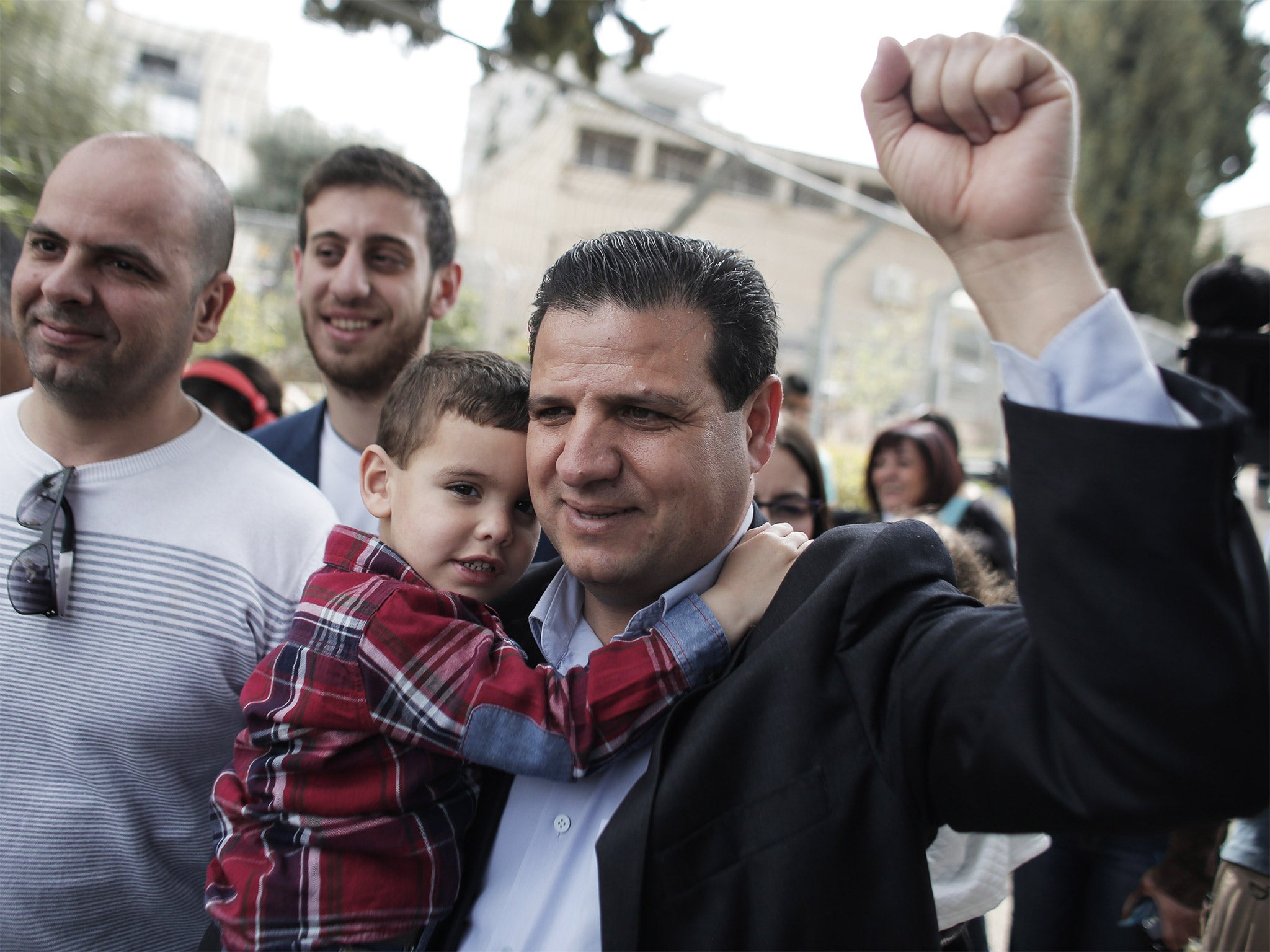Israeli politician 'has a dream' of equality between Jews and Arabs
Ayman Odeh cites civil rights hero Martin Luther King Jnr as his inspiration to close gap

After Israel’s 120 new MPs were sworn into the country’s new parliament, the Knesset, last week, and the national anthem was played, a familiar scene unfolded.
Most members of the Joint List, an alliance of Arab parties that became parliament’s third-largest grouping during the recent election, headed out of the hall, demonstratively boycotting the hatikva, a ballad that is resented by many Arabs for stressing ancient Jewish ties to the homeland while writing the Arabs’ history and existence out of the script.
But there was a notable exception as the party’s leader, Ayman Odeh, declined to join his protesting colleagues. Like his inspiration, Martin Luther King Jnr, Mr Odeh believes that only by alliance with those from the majority group – in this case, Israel’s Jews – can he hope to redress the marginalisation of Israeli Arabs, who make up a fifth of the population, and end the discrimination they suffer.
“There is no doubt that the anthem excludes us but despite this I didn’t want to bust everything up at the outset,” Mr Odeh said in an interview with The Independent. “I like to join people together and search for ways to speak and influence. I preferred to remain standing without singing this song, which not only doesn’t belong to me but with which I differ ideologically.”
Israel’s Arab citizens have the right to vote but face discrimination in employment, education, state budgeting, land allocation and other areas. And they complain that Israeli police in Arab locales tend to operate with a loose finger on the trigger. They identify strongly with fellow Palestinians living under occupation in the West Bank, who suffer from crippling economic and movement restrictions in the Gaza Strip.
In pictures: Israel election
Show all 21Mr Odeh said the black US civil rights leader of the 1960s was “the No 1 influence on my thinking. especially since he waged a joint black-white struggle”. He added: “This was not like Malcolm X who struggled for blacks only, but a struggle for blacks and whites together.” In the Israeli context this meant struggle “not just for the good of the Arab sector but for the general good, to be a democrat for the country as a whole”, he said. The Arab parties’ Joint List won a solid 13 seats in the election after coming together in an unprecedented alliance that grouped socialists like Odeh with hardline Arab nationalists, and Islamic fundamentalists with womens’ rights advocates. The pact arose because the Knesset raised the minimum threshold for entry from 2 per cent of the overall vote to 3.25 per cent, meaning smaller parties had to group together to survive.
In his first action since gaining election, Mr Odeh, 41, a lawyer from the northern city of Haifa, led a four-day 75-mile march from the southern Negev desert to Jerusalem to draw attention to the plight of 46 officially unrecognised Bedouin villages that lack water, electricity and schools. The Israeli state claims ownership of the land of some of the villages and wants to force residents to move to planned new townships. But Mr Odeh and the marchers submitted a plan to officials at the close of the march outlining how recognition of all the villages would “be good for Arabs and Jews alike”.
Asked what he will aim to achieve in the Knesset, Mr Odeh said: “My dream is a 10-year plan to close the gaps between Arab and Jewish citizens. We will have a huge march from Nazareth to Jerusalem to support this, an Arab-Jewish joint march.”
Much of the plan will focus on boosting employment, especially among Arab women. “A working woman pays taxes and this is good for you and good for me,” Mr Odeh said. “If the woman doesn’t work and gets only welfare then it’s bad for me and bad for you. The approach is that equality in the end of the day is good for all citizens of the state, not just Arabs.”
Mr Odeh is convinced that Jewish fear of Arabs is one of the obstacles to Arabs achieving equality. “There is a historic problem in that Jews were always in the minority in the world and here they find themselves in a big Arab expanse. So there is no doubt there is fear on the part of the Jews and I try all the time not to do things which can frighten. On the contrary, I try to build trust between the peoples.”
He said his biggest challenge as a leader in the Knesset is to “find the balance between the national honour of my people and the effort to speak to the Jewish public. One shouldn’t be at the expense of the other”.
Subscribe to Independent Premium to bookmark this article
Want to bookmark your favourite articles and stories to read or reference later? Start your Independent Premium subscription today.

Join our commenting forum
Join thought-provoking conversations, follow other Independent readers and see their replies